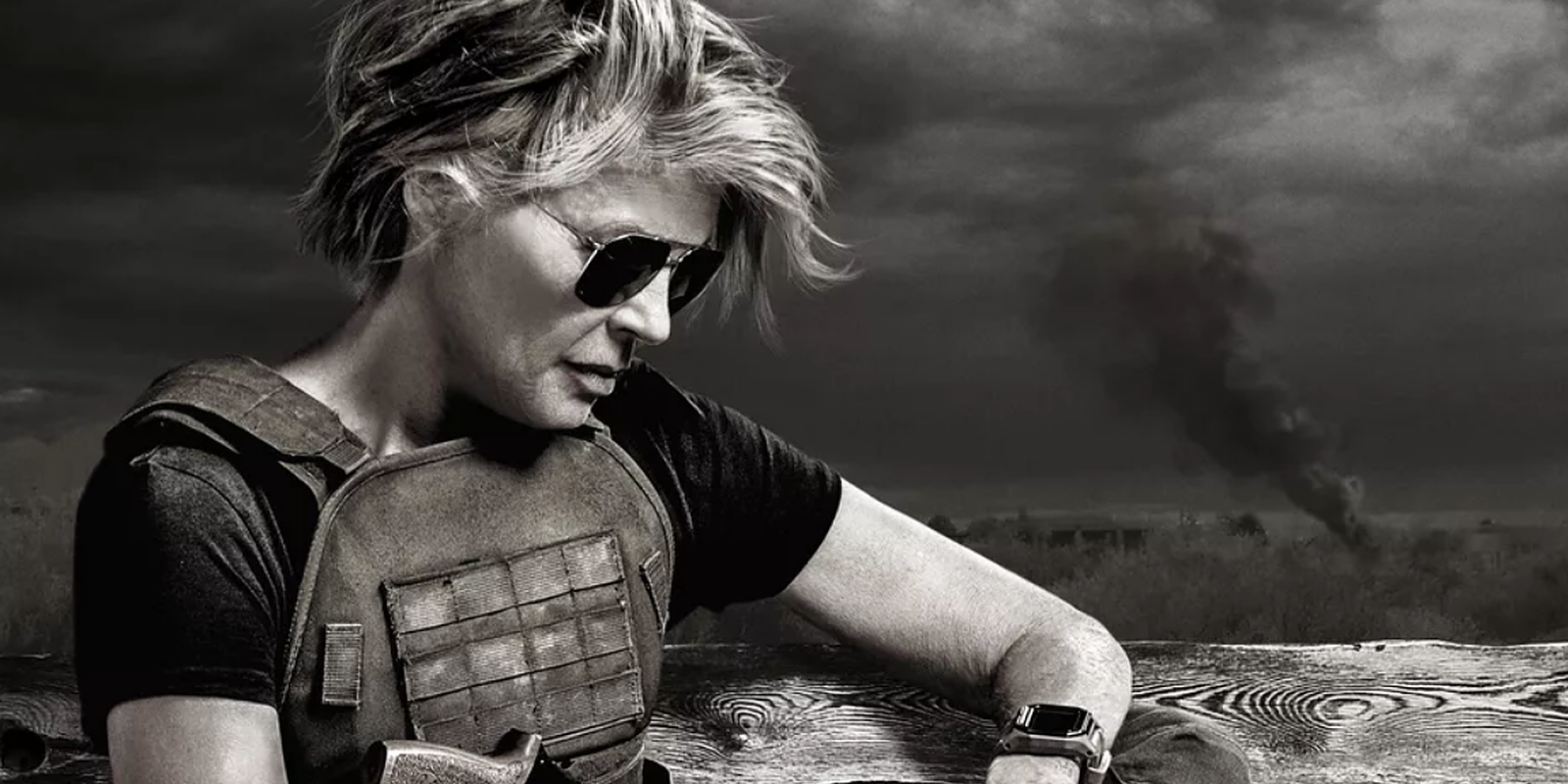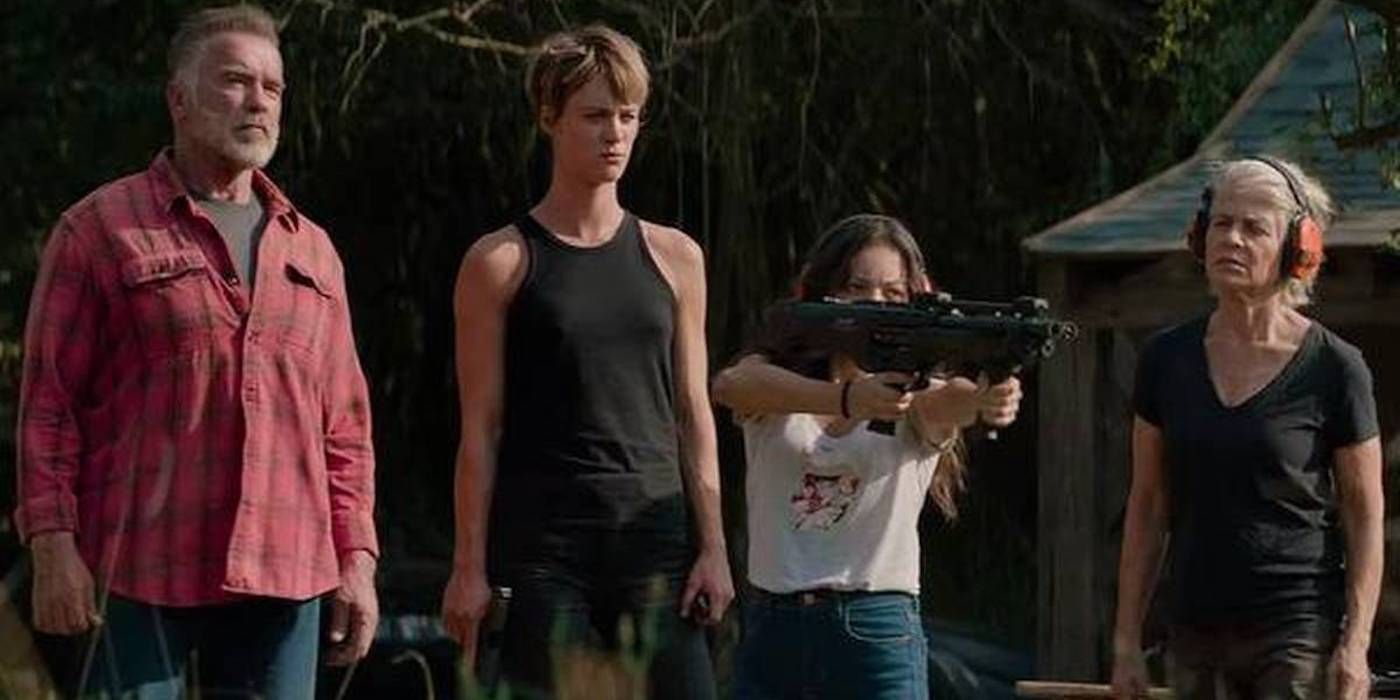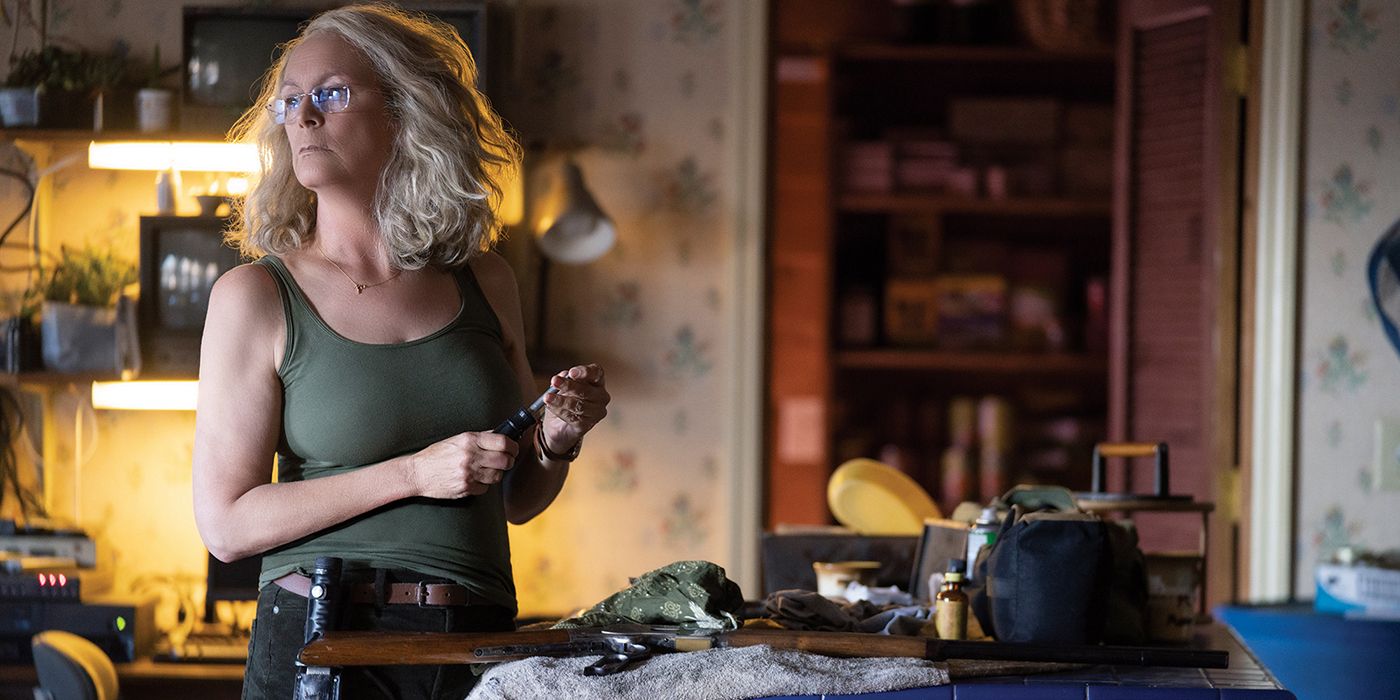Terminator: Dark Fate finds Linda Hamilton's Sarah Connor an embittered, friendless drunk. She's got steely hair -- and even steelier eyes -- a big car full of big guns; a phone on ice in an old potato chip bag (she really likes potato chips) and she'd prefer to stick a rifle in her new companions' faces than extend a hand to them. The years have not been kind to her, and she offers little of the same back. And yet, she remains, as she always has been, an endlessly likable screen presence.
How often have we been able to see female action heroes age this much on-screen? How often have we been able to see any female characters of this age star in a major, action-oriented blockbuster? The answer is, unfortunately, hardly ever -- if at all.
While we're used to seeing male action stars like Bruce Willis, Sylvester Stallone and Arnold Schwarzenegger hanging onto those kinds of headlining roles for as long as they like, the same can't be said for women. This is partly because it's taken a long time to dispel the myth that an action movie starring even a young woman won't make money (which this long list proves isn't the case). Just last year, only 7% of action movies had any female protagonists in them. There are also few older actresses that have an iconic role of this kind they could return to -- Sigourney Weaver should surely be next on the list after Hamilton and Curtis -- while creating new ones for women over the age of 40 is an uphill battle for any genre.
You only have to look at the continuing age disparity between same-sex couples on-screen to understand why the double standard exists. As soon as women stop being seen for their sexual or physical value, they're often forced to transition into docile, maternal roles or evil, childless ice queens. Meryl Streep -- who has played both -- pointed out that once women hit a certain number, all they're seen as fit to play are "hags and witches." That's why Dwayne "The Rock" Johnson can be the biggest action star on the planet at 47 while Angelina Jolie went from being Lara Croft to being cast as Colin Farrell's mother just three years later in Alexander. She was 29-years-old. Farrell was 28.
The "Strong Female Character" label, when applied to heroines far older than the Katniss Everdeens and Reys of the silver screen, usually speaks to a kind of matronly stoicism (unless you're as blessed as Helen Mirren) rather than an active and battle-born warrior. Obviously, there's an argument to be made that greater and fairer representation of older women in action-oriented roles can help shift gendered and ageist stereotypes, but what's the artistic one? Well, what's the artistic argument to be made in bringing back John Rambo, Rocky Balboa or the T-800? Just look at Logan or Creed: when done right, there's huge value to be gleaned in seeing our favorite heroes transition from their early to their twilight years. A hero as iconic as Sarah Connor deserves the same treatment, which Dark Fate gives her.
At times during the film, there are glimpses of the wide-eyed fear Connor once regarded Arnold Schwarzenegger's hulking T-800 body with in the first two Terminator installments. At others, we find her hardened expression softened by the sight of Mackenzie Davis' Grace and Natalia Reyes' Dani sharing moments of kinship. Make no mistake, though: this isn't exactly The Sisterhood of the Travelling Pants. Dark Fate is, to its detriment, yet another sci-fi thriller about time-traveling murder 'bots, but it's also (not to its detriment) a story about transgressing gendered, generational divides, with three women thrown together not only by disparate timelines but disparate ages, skillsets and agendas.
Cooperation between them doesn't come through forced female friendship -- the kind normally signaled by clinking cocktail glasses and soundtracked by frothy synthpop -- nor does it come in spite of catty digs at each other, though Connor gets plenty of withering remarks in. Instead, the women of Dark Fate begin more as begrudging colleagues and end up parting ways as war veterans: bonded less by familial affection and more by harrowing memories and a resolution to maintain their hard-won peace as mentor and protege.
At the center of it all isn't the return (again) of the "Governator," but Sarah Connor -- as flawed and snappily paced as the film itself, and all the better for it.
Interestingly, this time last year we were told a similar story by another franchise reboot: 2018's Halloween. Like Connor, Jaime Lee Curtis' Laurie Strode began John Carpenter's genre-defining slasher series as the victim of a relentless and amoral pursuer, with little else to defend herself but her own wits and ingenuity. Over three decades later, Curtis' return (though far from her first) to her breakthrough role wiped the slate almost clean, setting the stage for a reunion that she'd spent the intervening years keenly preparing for, at great cost to her personal life.
In Halloween, Strode, like Connor, has become as mythic a figure as the blank-faced monster that hunts her; she's isolated, stern and acutely paranoid. Her daughter hates her and her granddaughter doesn't know her, but as the same threat inevitably returns, these three generations of women -- just like in Dark Fate -- find strength in the solidarity of survivorship. Trauma becomes a shared experience and, in that, the burden of it on Laurie alone lessens. In the horror genre, we've seen the "Final Girl" trope graduate to the more sophisticated "Final Mother," through the likes of The Babadook; Birdbox and Hereditary. Now, in Strode, we have the "Final Grandmother" -- and she's packing lots of ammo and zero fucks.
In interviews, Curtis was frank about the timeliness of the reboot's message in the current #MeToo zeitgeist: these aren't just simple stories of revenge best served cold -- they're the release of female rage against an attacker that has been left simmering for decades. Both Dark Fate and Halloween wouldn't have been able to do this without allowing their female heroines to not just grow but to age; to bear old wounds and old grudges, and rip them all open again to see their stories through the bitter end.




